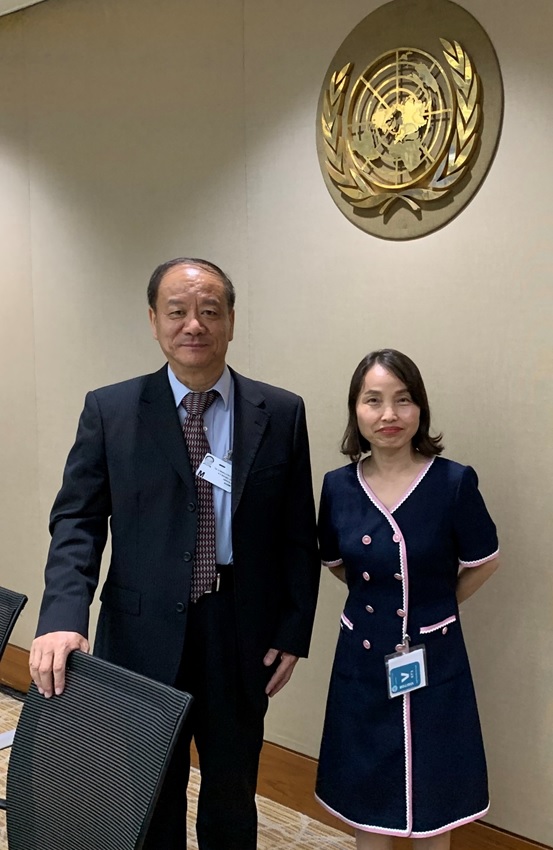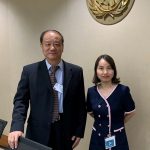 Prof Liu Jianhong (left) has been appointed an advisor to the UNODC Asia-Pacific Regional Centre for Excellence on Criminal Justice Statistics
Prof Liu Jianhong (left) has been appointed an advisor to the UNODC Asia-Pacific Regional Centre for Excellence on Criminal Justice Statistics
Prof Liu Jianhong, Distinguished Professor and associate dean of the University of Macau’s (UM) Faculty of Social Sciences, has been appointed an advisor to the United Nations Office on Drugs and Crime (UNODC) Asia-Pacific Regional Centre for Excellence on Criminal Justice Statistics, in recognition of his work related to illegal drug problems and crime prevention.
Founded in 1997, the UNODC is headquartered in Vienna, Austria. It is the highest UN agency in charge of drug control and crime prevention. Its main function is to lead and coordinate global efforts on illegal drug problems and research on issues related to global crime and criminal justice. UNODC has established the first Crime and Criminal Justice Statistics Center in Mexico. It held a meeting in Bangkok recently to discuss the specific tasks of the second centre in South Korea as well issues of strategies and policy for crime and criminal justice statistics.
Prof Liu is an influential scholar in the field of international criminology. He was elected President of the Scientific Commission of the International Society of Criminology in 2014 and was re-elected to the same position in 2019 for a five-year term. He founded the Asian Criminological Society (ACS) at UM in 2009 and was elected to be its first president. He is currently the chairman of the General Assembly of the ACS and a member of the leadership of various world-renowned criminology organisations.


